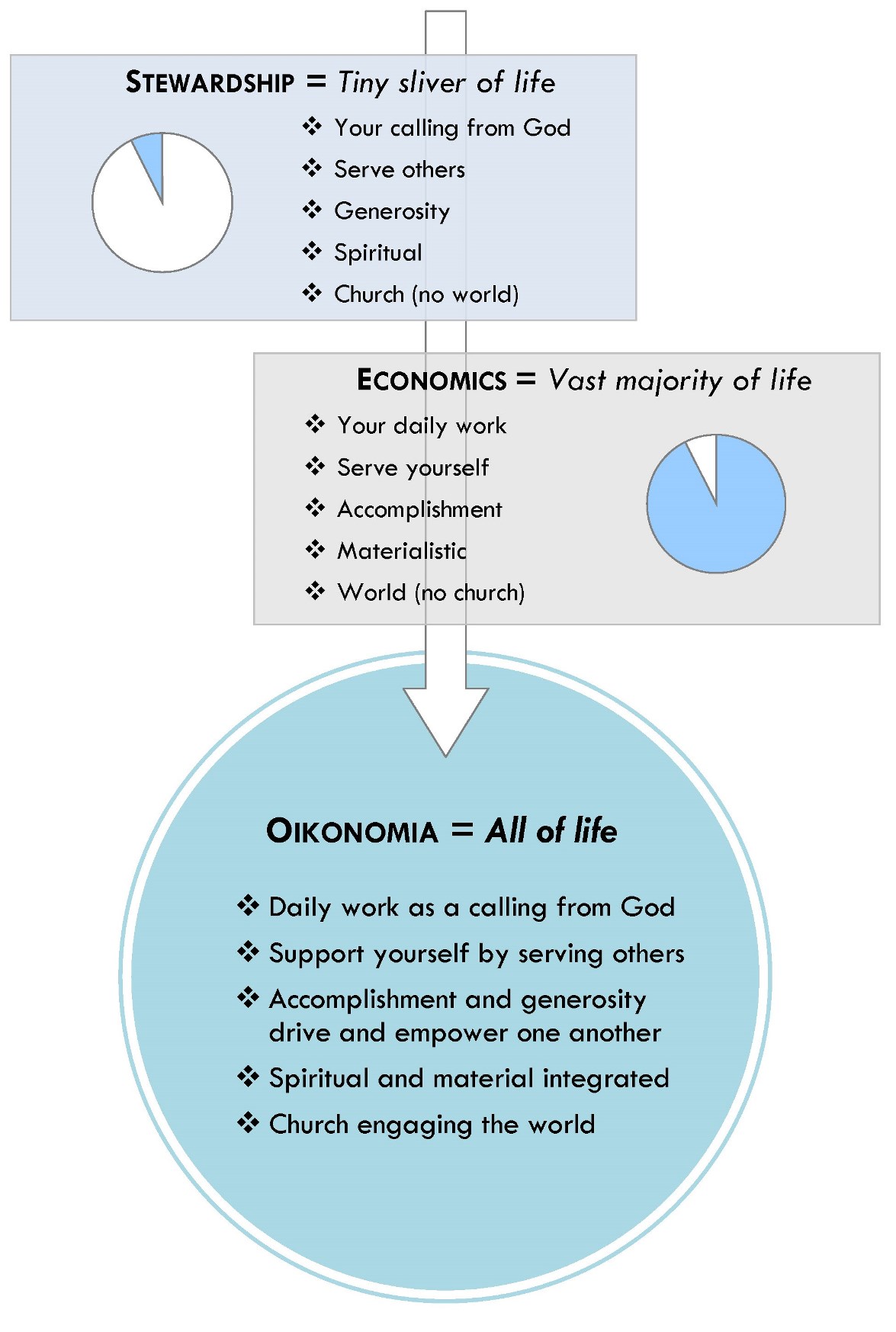Oikonomia: A Holistic Theology of Work in One Flowchart

By Joseph Sunde
The following flowchart comes from “Theology That Works,” a 60-page manifesto on discipleship and economic work. The document was written by Greg Forster and published by the Oikonomia Network, a “learning community of theological educators and evangelical seminaries” whose “mission is to prepare future pastors to connect biblical wisdom, sound theology, and good stewardship to work and the economy.”
Given our tendency to veer too far in either direction (stewardship or economics), and to confine our Christian duties to this or that sphere of life, the diagram is helpful in demonstrating the overall interconnectedness of God’s Economy of All Things.

As Forster explains:
In most churches today, stewardship only means giving and volunteering at church. But in both scripture and historic Christian theology, we find a concept of stewardship that encompasses our whole lives. Stewardship is primarily about who we are, not what we do, and how we cultivate the world in all our activities. Whatever you do, Paul says in Colossians 3:23-24, work heartily, because whatever you do, you are serving the Lord Christ! Our individual discipleship, our church communities, our participation in homes and workplaces, and our witness to society at large must recover a holistic theology of stewardship and calling. We must reintegrate our model of discipleship with the call to cultivate the world.
It is no coincidence that “stewardship” comes from the same Greek word (oikonomia) as “economics,” which refers to the management of things in the world. Good stewardship is good management of things in the world.
Unfortunately, churches usually limit their concept of how we serve God (stewardship) to formally religious activities. This radically separates it from our management of the creation order (economics). A holistic theology of oikonomia would reintegrate a God-centered commitment to whole-life discipleship with a God-centered commitment to cultivate the world. Not only would this revitalize our discipleship, it would deepen our theological perspective on the crucial role of work in the Christian life, and on the enormous sphere of activities defined by work (employment, ownership, commerce, finance, entrepreneurship, etc.). It would also help us to incorporate the principles of wise creation management into our church programs, which often lack good stewardship in their finances and other economic aspects.
To read Theology That Works, download the PDF here.
- Log in to post comments
